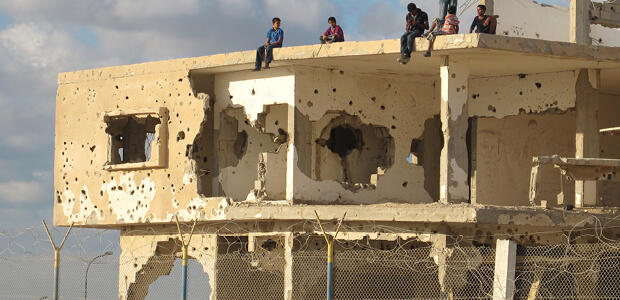
Project
 Governance and fragility
Governance and fragility
Theme: 2010-11
Competitive elections in many parts of Africa generate powerful incentives to presidential candidates (and to a lesser extent political parties) to brand themselves in ways that transcend regional or ethnic loyalties. In Malawi, Joyce Banda—President...
The political consequences of economic inequality have been debated in academic and policy circles for centuries. The nature of this relationship seems highly dependent on specific contexts, with empirical studies showing mixed evidence on how...
Across Kenya, Malawi, and Zambia, political candidates often attempt to buy the votes of the most socio-economically deprived communities. But new...
Political violence is a worldwide problem that has been on the rise over the past decade. The international dimension of domestic repression and dissent is a particularly relevant factor yet surprisingly understudied. In particular, governments that...
We investigate the impact of the political representation of minority groups on the incidence of ethnic conflict in India. We code data on Hindu-Muslim violence and Muslim political representation in India and leverage quasi-random variation in...
This paper presents evidence of political legacies of exposure to a violent class conflict over 100 years. We revisit the Finnish Civil War of 1918 and first trace out the impact of local conflict exposure on electoral outcomes over a quarter-century...
Part of Journal Special Issue Clientelist Politics and Development
Although formal education is often considered an indicator of political leaders’ quality, the evidence on the effectiveness of educated leaders is mixed. Besides, minimum education qualifications are increasingly being used as requirements for...
Vote-buying—or the pre-electoral distribution of private goods in exchange for support at the ballot box—is often blamed for the poor economic performance of many sub-Saharan countries. For instance, vote-buying may undermine accountability and the...

The last several months have given us many reasons to worry about US democracy – not least the riot at the US Capitol and the president’s refusal to...
Part of Book The Politics of Social Protection in Eastern and Southern Africa

In the campaign leading up to the Lok Sabha elections in spring 2014, one of the more important promises that Narendra Modi made was to ‘clean up’ the...

When Narendra Modi became India’s prime minister in spring 2014 the Indian economy was in the doldrums. There was a clear policy paralysis in India’s...